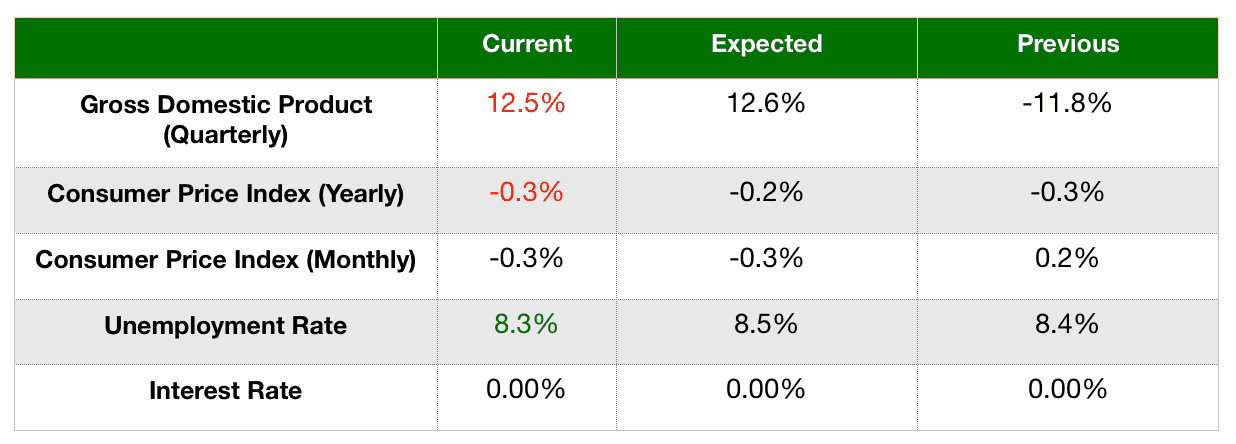ECB denies any fiscal tightening; EUR loses ground against USD; Eurozone inflation data worsens.
The European Central Bank recently released the minutes of its monetary policy meeting, which showed that the bank’s policymakers supported the decision to continue with an accommodative monetary policy stance until March 2022.
The committee also expressed concern about the future of the eurozone economy, as they expect the economy to return to pre-crisis levels by mid-2022.
European Central Bank President Christine Lagarde recently warned against stopping stimulus measures now that economic recovery is in sight.
“Any kind of tightening at this point would be highly unjustified,” she commented, adding that it could lead to “very serious risks.”
The Eurozone continues to struggle with inflation and the effects of exchange rates on it. The recent appreciation of the euro worries policymakers, as it makes exports more expensive and hurts local producers.
“It was noted that the nominal effective exchange rate is currently at an all-time high and that the recent appreciation could contribute significantly to the reduced inflation outlook,” the ECB’s Monetary Policy Committee said in its minutes.
The eurozone economy is expected to recover by 5.3 percent this year, as many expect the economy to return to normal now that the vaccination campaign is underway.
The ECB’s Monetary Policy Committee is expected to meet next Thursday.
Economic calendar
This week the markets learned some relevant information about the state of the European economy. Eurostat announced on Wednesday that industrial production was 2.5%, compared to October’s 2.3% and expectations of 0.2%. On an annual basis, it fell by 0.6%, which is more than expectations of 3.3% and the previous month’s 3.5%.
The euro is losing ground against the dollar
So far this week, the euro is down 0.63%, snapping a two-week rally.
Many are linking this sudden weakness in the euro to the recent strength of the US dollar, as markets expect President-elect Joe Biden to announce a very ambitious fiscal stimulus package. Those expectations prompted traders to rush out of bonds and into stocks and the dollar.
“With labor really struggling, there’s an argument to be made that we could be looking for more stimulus,” commented an OANDA analyst. “Ultimately, the markets expect to see more stimulus than expected in the first 100 days of Biden and that’s why we see the dollar holding.”
As we mentioned before, European policymakers have been very concerned about the recent appreciation of the euro, as it poses a problem for exporters. Many speculate that this opens the door for forex intervention, although it is unclear whether such a move is likely at this time.
Eurozone inflation data worsened
Since our last report, inflation data has worsened. On an annual basis, the consumer price index fell by 0.3%, which is more than the expectation of -0.2%. On a monthly basis, the consumer price index remained in line with expectations at -0.3%.
Inflation is still too low, considering that the European Central Bank is targeting an inflation level of 2%.
The unemployment rate improved to 8.3% in the latest reading, better than expectations of 8.5%.
Data on gross domestic product have remained unchanged so far.

